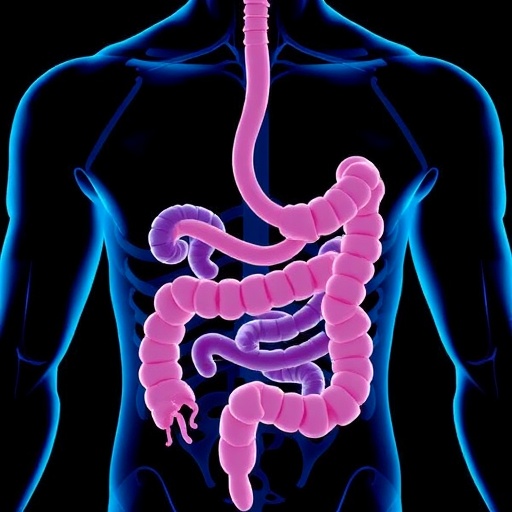A groundbreaking study conducted by UCLA Health has provided new insights into the use of an eight-strain probiotic formulation in reducing the incidence of pouchitis, a challenging inflammatory condition that afflicts many patients following colon removal surgery due to ulcerative colitis. This condition develops in patients who undergo restorative proctocolectomy, in which the colon and rectum are surgically removed, and a new internal reservoir, or “pouch,” is fashioned from the small intestine to restore bowel function without the need for an external ostomy. The inflammatory process affecting this surgically created pouch, known as pouchitis, leads to significant morbidity, characterized by symptoms such as urgency, increased bowel frequency, abdominal pain, and bleeding.
Previously, probiotics have shown promise in preventing both the initial onset and recurrence of pouchitis, but until now, their economic value had not been rigorously evaluated. Leveraging advanced computational modeling techniques, the research team rigorously analyzed the cost-effectiveness of administering a daily regimen of this specific eight-strain probiotic formulation in preventing pouchitis over a two-year horizon. The study’s approach integrated clinical outcomes with economic analysis, providing a dual perspective on both health benefits and financial implications for payers such as Medicare, Medicaid, and private insurance.
The results illuminated a critical nuance in probiotic application: while the formulation demonstrably reduces the risk of pouchitis, its cost-effectiveness is tightly linked to a patient’s predisposition for flare-ups. Patients experiencing frequent pouchitis relapses—defined as two or more episodes annually—stand to derive the greatest value from daily probiotic therapy. In these cases, the treatment’s capacity to prevent multiple inflammatory episodes makes it economically viable and clinically beneficial. Conversely, for patients with infrequent or no history of recurrent pouchitis, the high cost of the probiotic regimen substantially outweighs its preventive advantages.
From a purely financial standpoint, the study revealed that for the prevention of the initial occurrence of pouchitis, probiotic treatment was nearly ten times more expensive than not undergoing probiotic therapy, costing $2,200 compared to $299 over two years. When considering secondary prophylaxis for patients with infrequent relapses, the financial burden was sixfold, with costs of $3,370 versus $557 without probiotics. Such disparities underscore the importance of precision in patient selection before recommending daily probiotic use.
The underlying computational model incorporated probabilities of pouchitis onset and relapse, antibiotic treatment costs, quality of life adjustments, and other direct medical expenses. This multi-parameter simulation afforded a comprehensive outlook on how probiotic therapy interacts with patient-specific clinical trajectories and health economic factors. The model’s findings therefore extend beyond efficacy, encompassing pragmatic concerns relevant to healthcare policy and insurance reimbursement strategies.
Pouchitis itself represents a unique and substantial complication in the management of ulcerative colitis post-colectomy. The surgical creation of the pouch aims to maintain continence and improve quality of life but introduces a new site susceptible to inflammation. Despite antibiotics being the standard acute treatment, their repeated use carries risks such as antibiotic resistance and adverse effects, motivating the investigation of alternative prophylactic strategies like probiotics.
Dr. Gaurav Syal, lead author and inflammatory bowel disease gastroenterologist at UCLA, emphasized how these findings inform shared decision-making frameworks in clinical practice. By balancing efficacy with economic constraints, providers and patients can tailor treatment plans that optimize outcomes while considering cost implications. Moreover, these insights equip policymakers and third-party payers to allocate resources effectively, mitigating excessive expenditures on interventions unlikely to yield proportional benefits in low-risk populations.
The eight-strain probiotic examined includes carefully selected bacterial species known for their anti-inflammatory and gut microbiome-stabilizing properties. Its mechanism is hypothesized to involve modulation of the intestinal immune response and restoration of microbial balance within the ileal pouch, thereby reducing the inflammatory cascade responsible for pouchitis. However, the probiotic’s relatively high price point currently limits its broader applicability as a first-line prophylactic measure in all post-colectomy patients.
This research marks a significant advancement not only in understanding the clinical efficacy of probiotics in pouchitis prevention but also in integrating cost-effectiveness metrics into therapeutic decision-making. Such multidimensional evaluations are increasingly vital in today’s healthcare landscape, which demands both clinical innovation and fiscal responsibility. Future work may explore strategies to reduce probiotic costs or identify biomarkers predicting recurrent pouchitis, further refining patient stratification and optimizing treatment value.
In essence, the UCLA study provides a crucial blueprint for how emerging therapies like multi-strain probiotics can be judiciously incorporated into complex disease management algorithms. It advocates for a precision medicine approach where patients with frequent inflammatory relapses are prioritized for probiotic prophylaxis, while others may benefit more from alternative strategies. This paradigm not only enhances clinical outcomes but also ensures sustainable healthcare spending aligned with patient risk profiles.
As the therapeutic landscape for inflammatory bowel diseases continues to evolve, such cost-effectiveness analyses become indispensable tools for clinicians, researchers, and payers alike. The intersection of microbiome science, clinical gastroenterology, and health economics showcased in this study highlights the multifaceted dimensions of innovation needed to tackle chronic inflammatory disorders effectively and sustainably.
Subject of Research: Not applicable
Article Title: Cost-Effectiveness of the Eight-Strain Probiotic in Primary and Secondary Prophylaxis of Pouchitis
News Publication Date: August 28, 2025
Web References: https://doi.org/10.1016/j.gastha.2025.100776
References: Gaurav Syal, MD, et al; Gastro Hep Advances; 2025
Keywords: Gastroenterology, Cost effectiveness, Gastrointestinal disorders, Ulcerative colitis, Inflammatory bowel diseases, Health insurance




